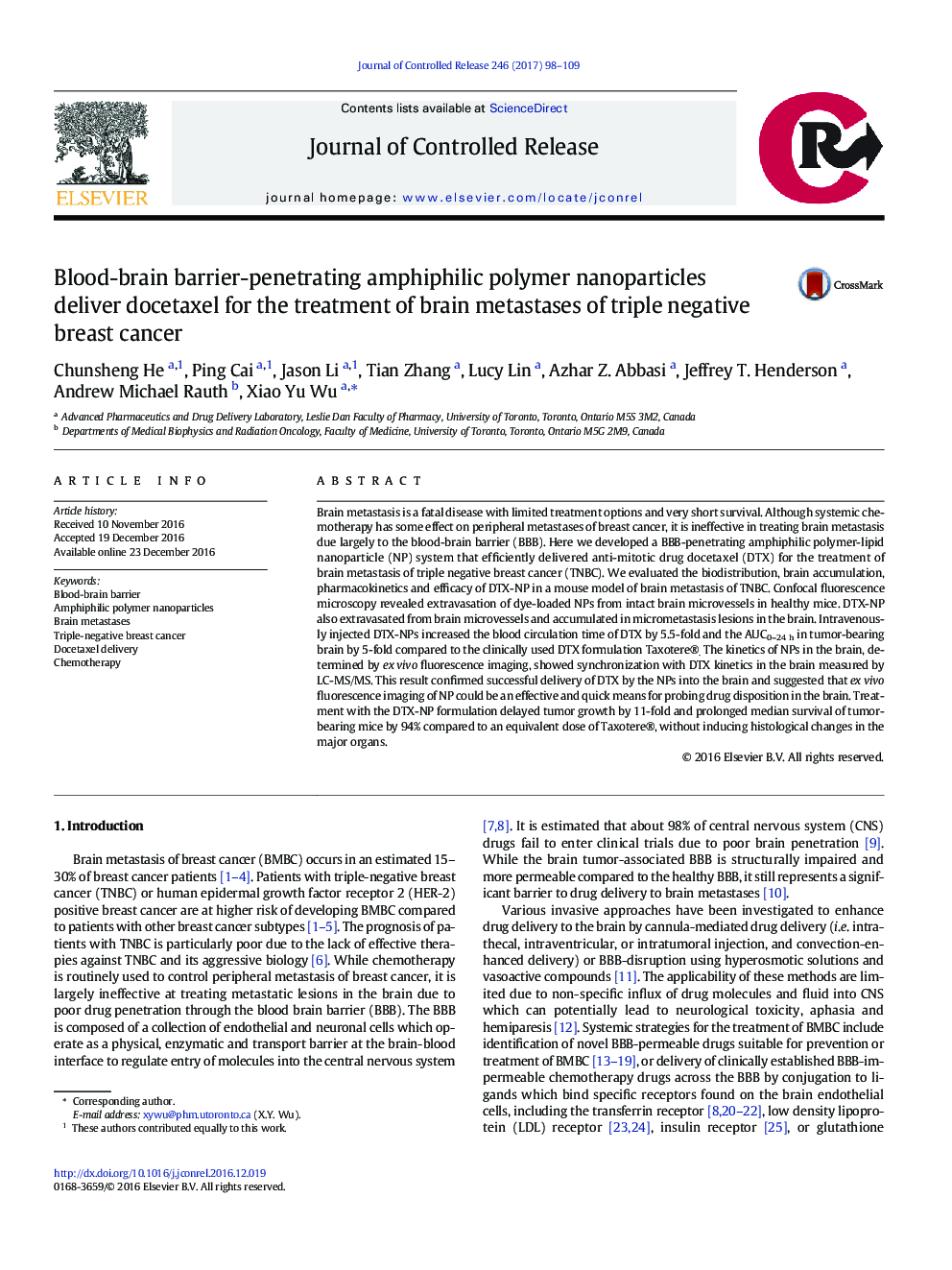| Article ID | Journal | Published Year | Pages | File Type |
|---|---|---|---|---|
| 5434018 | Journal of Controlled Release | 2017 | 12 Pages |
Brain metastasis is a fatal disease with limited treatment options and very short survival. Although systemic chemotherapy has some effect on peripheral metastases of breast cancer, it is ineffective in treating brain metastasis due largely to the blood-brain barrier (BBB). Here we developed a BBB-penetrating amphiphilic polymer-lipid nanoparticle (NP) system that efficiently delivered anti-mitotic drug docetaxel (DTX) for the treatment of brain metastasis of triple negative breast cancer (TNBC). We evaluated the biodistribution, brain accumulation, pharmacokinetics and efficacy of DTX-NP in a mouse model of brain metastasis of TNBC. Confocal fluorescence microscopy revealed extravasation of dye-loaded NPs from intact brain microvessels in healthy mice. DTX-NP also extravasated from brain microvessels and accumulated in micrometastasis lesions in the brain. Intravenously injected DTX-NPs increased the blood circulation time of DTX by 5.5-fold and the AUC0-24Â h in tumor-bearing brain by 5-fold compared to the clinically used DTX formulation Taxotere®. The kinetics of NPs in the brain, determined by ex vivo fluorescence imaging, showed synchronization with DTX kinetics in the brain measured by LC-MS/MS. This result confirmed successful delivery of DTX by the NPs into the brain and suggested that ex vivo fluorescence imaging of NP could be an effective and quick means for probing drug disposition in the brain. Treatment with the DTX-NP formulation delayed tumor growth by 11-fold and prolonged median survival of tumor-bearing mice by 94% compared to an equivalent dose of Taxotere®, without inducing histological changes in the major organs.
Graphical abstractDownload high-res image (230KB)Download full-size image
